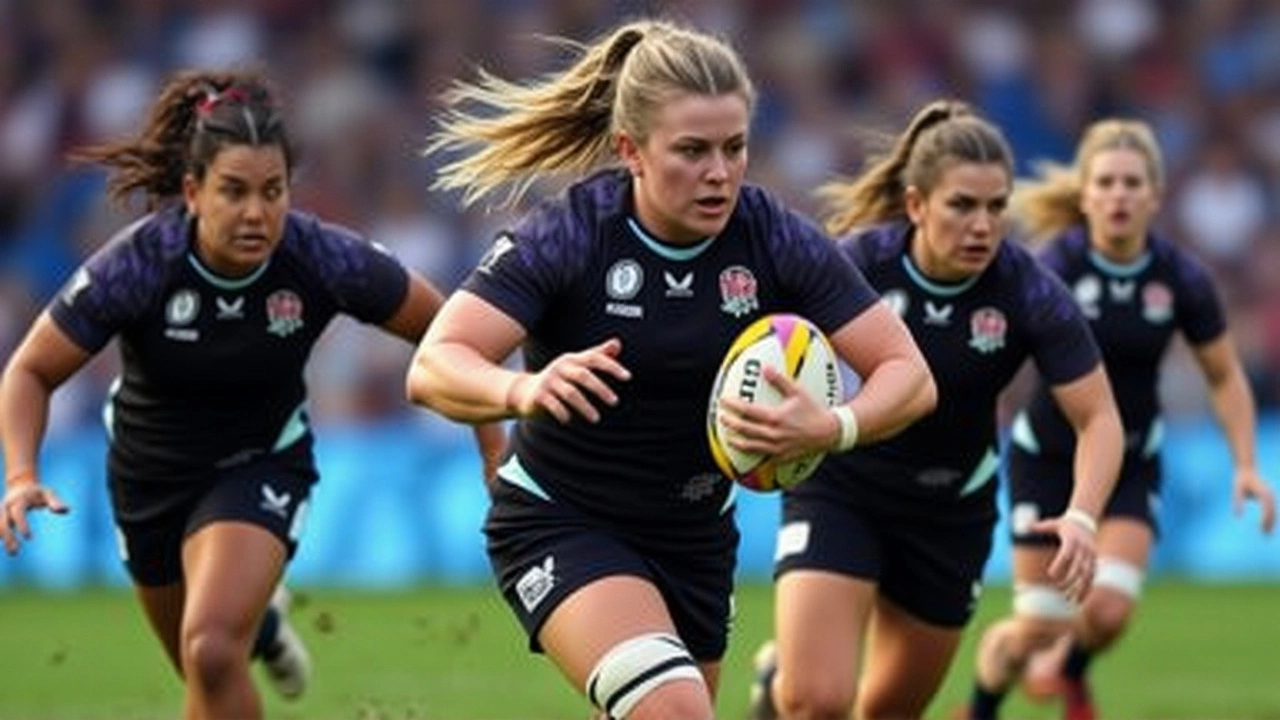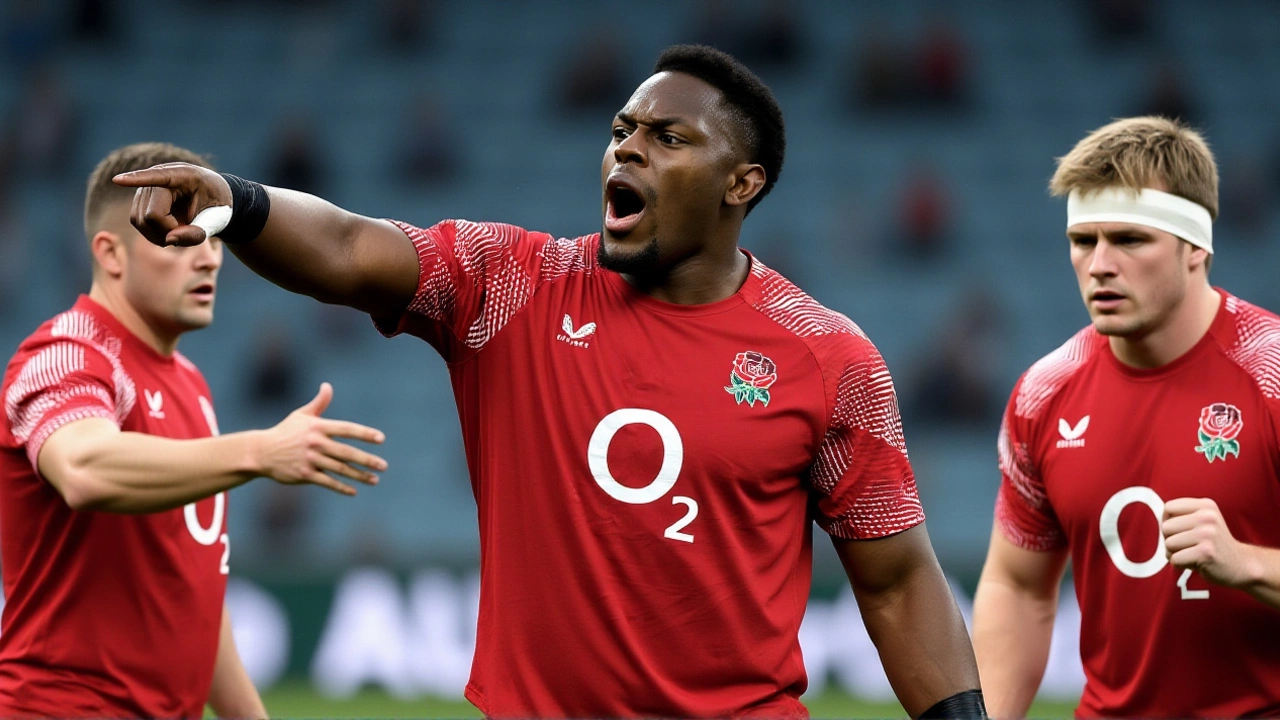When the final whistle blew at Twickenham Stadium on September 27, 2025, the roar of 82,000 fans wasn’t just for the scoreline—it was for a generation of girls who now believe they can be champions too. England’s Red Roses claimed their third Women’s Rugby World Cup title, defeating Canada 35-17 in a performance that blended raw power with surgical precision. The victory wasn’t just about lifting the trophy; it was about rewriting what’s possible in women’s sport. The tournament, hosted across eight English cities from August 22 to September 27, 2025, drew record crowds and streaming numbers, with every match available on BBC iPlayer and broadcast live on BBC Sport.
From Pool Play to the Final: The Road to Glory
England didn’t just win—they dominated. Their opening match on August 22, 2025, at the Stadium of Light in Sunderland saw them crush the United States 69-7, setting the tone. By the time they faced Australia in Brighton on September 6, they’d already secured top spot in Pool A with a 47-7 win. Meanwhile, Canada, the defending champions, were quietly building momentum: a 65-7 thrashing of Fiji, a 42-0 demolition of Wales, and a gritty 40-19 win over Scotland signaled they were a force. The real shock came in the semi-finals. New Zealand, the three-time defending champions, lost 34-19 to Canada at Ashton Gate Stadium in Bristol. It was the first time since 2006 that the Black Ferns didn’t reach the final.England’s semi-final against France was a masterclass. At the same Bristol venue on September 20, they outplayed the French 35-17, with fly-half Ellie Kildunne scoring a try in the 22nd minute and converting three penalties. The Red Roses’ forwards, led by captain Marlie Packer, controlled the breakdown with ruthless efficiency. "We knew they’d come hard," Packer said afterward. "But we’ve trained for this. Not just for the final. For every tackle, every ruck, every minute since 2014."
Host Nation, Historic Moment
This was England’s third time hosting the Women’s Rugby World Cup—after 1994 and 2010—and their third title. The last time they won, in 2014, the final was watched by 1.2 million people on UK TV. This time, over 11.7 million viewers tuned in across linear and digital platforms. The Women’s Sport Trust reported that girls’ aspirations to play professional sport hit an all-time high in 2025, with 68% of girls aged 12–17 saying they now believe they could represent their country—a 22-point jump since 2020.The tournament’s footprint was massive. Matches were played in seven stadiums across England, from the 48,000-capacity Sandy Park in Exeter to the intimate 15,000-seat Franklin’s Gardens in Northampton. Even smaller venues sold out. In York, where Japan beat Spain 29-21, fans camped overnight for tickets. "It’s not just rugby," said 14-year-old fan Lila Morris from Leeds. "It’s about seeing women who look like me, who talk like me, winning on the biggest stage."

Standout Performances and Statistical Dominance
The numbers told a story of growth. New Zealand scored 287 points in four matches, the most of any team. But it was France who surprised most—scoring 84-5 against Brazil and 57-10 over South Africa. Their fly-half, Caroline Drouin, averaged 9.3 points per game. On the other side, England’s Ellie Kildunne finished as top try-scorer with seven tries, including a stunning 45-meter dash against Canada in the final. Canada’s Pam Buisa, featured in the official tournament podcast, finished with 11 try assists and was named Player of the Tournament.Defensively, England conceded just 47 points across six matches—the lowest in tournament history. Their scrum won 94% of their own ball, and their lineout success rate hit 92%. "We didn’t just play rugby," said England’s head coach, Simon Middleton. "We played with purpose. Every tackle, every pass, every kick—it was all about legacy."
Legacy Beyond the Trophy
The impact extended far beyond the pitch. Rugby Football Union announced a £15 million investment in grassroots women’s rugby across England, with funding earmarked for 200 new community clubs. The Rugby World Cup 2025 official website recorded over 47 million video views of match highlights—including Ellie Kildunne’s try against Canada, which became the most-watched women’s rugby clip in history.Even broadcasters noticed. BBC Sport reported a 200% increase in female viewership for rugby programming compared to 2021. "This isn’t a flash in the pan," said BBC’s lead sports presenter, Anne Kavanagh. "This is the moment the public stopped seeing women’s rugby as a novelty and started seeing it as elite sport."

What’s Next?
The next Women’s Rugby World Cup is scheduled for 2029 in Australia. But the real question isn’t where—it’s who. Canada’s core group, including Buisa and captain Kayla McAlister, are all under 28. New Zealand’s squad, though aging, still has stars like Ruahei Demant, who scored a try in the bronze final against France. Meanwhile, England’s squad is a blend of veterans like Packer and emerging talents like 19-year-old winger Amber Reed, who scored two tries in the quarter-final against Scotland.One thing’s certain: the bar has been raised. The tournament didn’t just crown a champion—it crowned a movement. And the movement isn’t slowing down.
Frequently Asked Questions
How did England’s 2025 victory compare to their previous World Cup wins?
England’s 2025 win was their third title, matching their 1994 and 2014 victories. But this time, they did it on home soil with a more dominant performance: they conceded just 47 points across six matches, the fewest in tournament history. Their 35-17 final win over Canada was their largest margin of victory in a final since 1994, when they beat the United States 44-6.
Which teams made their deepest run in the 2025 tournament?
France reached the semi-finals for the first time since 2017, while Spain and Brazil made their first-ever appearances in the group stage. Spain’s 29-21 win over Japan was their first-ever World Cup victory. Brazil, though outscored 249-25 across four matches, earned praise for their defensive grit—especially in their 66-6 loss to South Africa, where they held the Springbok Women to just one try in the first half.
Why was Canada’s win over New Zealand so significant?
Canada’s 34-19 semi-final win over New Zealand ended the Black Ferns’ 24-year streak of reaching the final. It was only the second time since 1998 that New Zealand failed to make the final, and the first time they lost in the semis. Canada’s captain, Kayla McAlister, called it "the most important win in our history," and it marked the first time a non-Anglophone team had beaten New Zealand in a World Cup knockout match.
How did broadcast numbers reflect the growth of women’s rugby?
The final attracted 11.7 million viewers across BBC platforms, more than the 2023 Men’s Six Nations final. BBC iPlayer recorded 4.2 million streams of the Canada-England final alone. The official tournament podcast, featuring players like Pam Buisa and Rachael Burford, hit 2.1 million downloads—making it the most-listened-to sports podcast in the UK that month.
What impact did the tournament have on youth participation?
The Rugby Football Union reported a 41% increase in girls aged 10–16 registering for rugby clubs in the three months after the final. In London alone, 37 new school teams formed. The Women’s Sport Trust cited a 22-point rise in girls saying they believe they could represent their country—now at 68%. "It’s not just about jerseys," said Trust CEO Sarah Wollaston. "It’s about identity. These girls now see themselves in the players on screen."
Where will future Women’s Rugby World Cups be held?
The 2029 tournament is confirmed for Australia, with Sydney and Melbourne as host cities. The 2033 event will be held in South Africa, marking the first time the Women’s Rugby World Cup will be hosted on the African continent. World Rugby has also confirmed that the 2037 tournament will be a joint bid by Ireland and Wales, signaling growing global interest.
